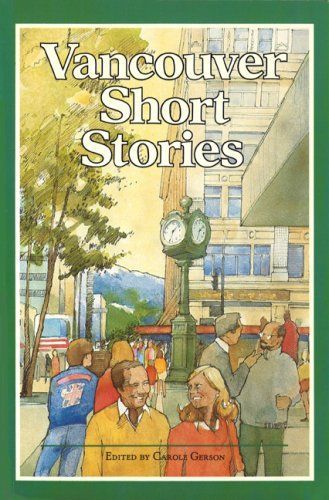
Vancouver Short Stories
"In a sense, we haven’t got an identity until somebody tells our story. The fiction makes us real."--Robert Kroetsch in Creation Spanning a period of nearly eighty years, the stories in this collection present the experience of living in Vancouver as filtered through the imagination of many of Canada’s most famous writers. The romantic attitude of some of the early writers is balanced by the more sombre version of many later authors, some of whom show the city as a place of loneliness and corruption. In tone, the stories range from the grimness of Dorothy Livesay’s account of Depression misery, to the irony of Ethel Wilson’s narrative of an evening garden party, to the playfulness of George Bowering’s ellipticla story of student life. Other well-known atuhors include Pauline Johnson, Emily Carr, Malcolm Lowry, Audrey Thomas, Alice Munro, and Joy Kogawa--as well as some who have been undeservedly consigned to obscurity--M.A. Grainger, Bertrand Sinclair, Jean Burton, and William McConnell. The more prolific among the younger writers--Frances Duncan, Cynthia Flood, and Kevin Roberts--are in the process of achieving national recognition. The stories evoke a strong sense of place, of Vancouver’s essential relation to its natural setting--forest, mountains, and sea--and its existence as a modern urban centre. Individual episodes recall the great fire of 1886, turn-of-the-century loggers on Cordova Street, rum-running in the twenties, the internment of Japanese-Canadians after Pearl Harbor, the hippie era, and the modern sub-culture of beer parlours and drugs. Particular locales include downtown streets, the east end, the North Shore, U.B.C, Stanley Park, Kitsilano, and the Vancouver Aquarium. Stories of the city’s social and cultural life describe the process of growing up and growing old, family and marital matters, the Chinese community, and the legends and reality of Native Americans. Vancouver Short Stories indicates some of the ways that a particular locality has been transformed into art that, in turn, enriches our understanding of its reality and enhances our sense of identity.